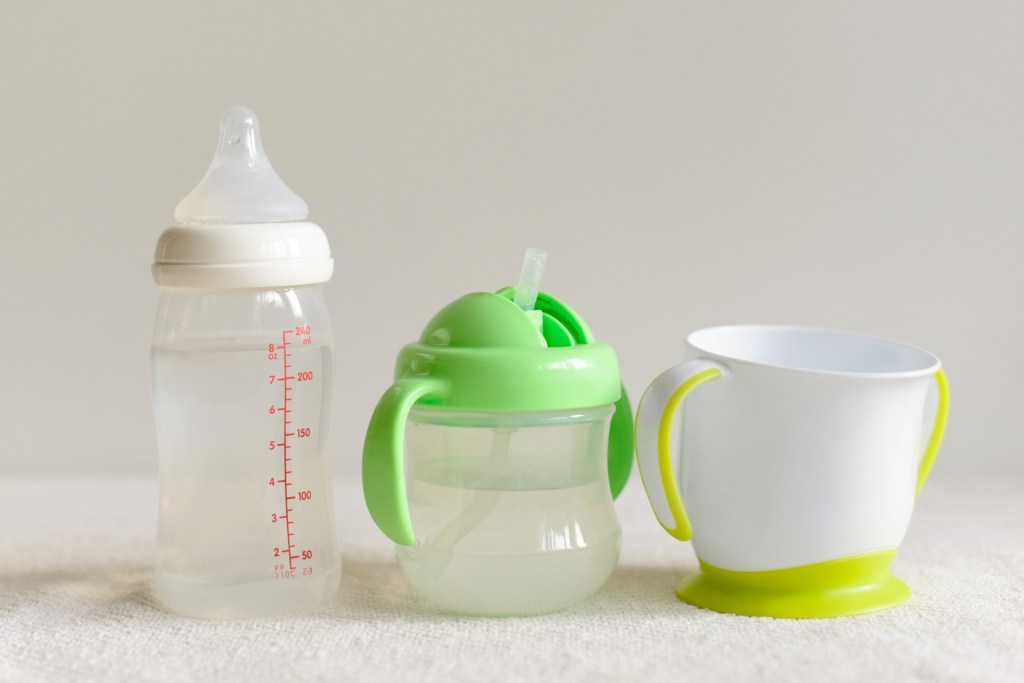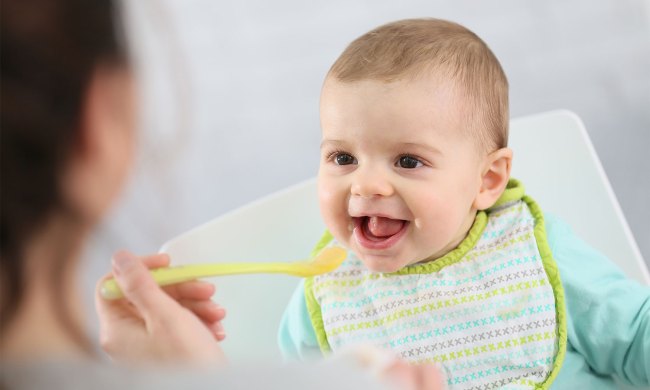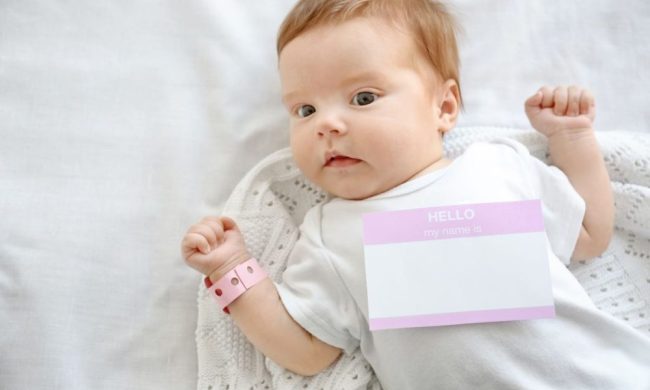When it comes to their bottles, babies usually don’t give them up without some sort of process or transition. Those words can strike fear into the minds of parents the globe over, as processes and transitions for babies mean many shed tears and a few sleepless nights. If your little one is coming close to the age of relinquishing their bottle, now may be a good time to prepare for the inevitable struggle there may be over its departure.
Assisting your child with aging out of the bottle phase can be tough, and we’ve found there are a few things to keep in mind to help ease the process:
- Understand the reasons to transition.
- Timing is everything.
- Have patience.
- Embrace helpful tools and equipment.

Why should babies give up their bottles?
As little ones grow and develop, so do all aspects of their bodies and brains. This also includes the appearance of teeth — which can be altered by extended bottle usage, causing possible future dental issues. Additionally, babies who continue to use bottles after 12 months of age are:
- More likely to develop ear infections when given a bottle at bedtime.
- More likely to experience a tougher time giving up the bottle when they begin to hit their toddler stage, which can be difficult enough on its own.
- Not able to receive the nutrients and benefits of solid foods when they become full on liquids. (This could ultimately affect their overall growth and development.)

When is the right time to move away from the bottle?
If your baby is approaching 12 months old, now could be an excellent time to start considering the move from bottles and feedings to mealtime and sippy cups. When babies approach their first birthday, pediatricians will often begin reminding parents that the time may be coming to move their little bundles of joy from bottles to feedings in their high chair. This time at the dinner table, just like their mom and dad, helps encourage little ones to mimic their parents and associate the table with meals.
What if things don’t go as planned?
It’s perfectly normal if your carefully constructed plan to seamlessly transition your precious angel from their favorite bottle to a sippy cup completely blows up in your face. It’s okay to make mistakes, and as a parent, you’ll likely make a lot of them. You won’t get it right the first time every time, or any time — and that is all right! What’s important to remember is that this is a transition for both yourselves and your baby. They have a deep attachment to their bottles — they’ve been a source of comfort for them over the past 12 months.
A few tips to utilize when jumping feet-first into sippy cups are:
- Implement a weekly transitional schedule that is slow and gradual. For example, it is recommended that each week, starting with breakfast, one feeding is to be replaced by offering your baby a sippy cup versus a bottle.
- Each week, another feeding is replaced by a sippy cup until the bottle has been eliminated.
- Taking that a step further, it is also suggested by Johns Hopkins University that each bottle that is offered between sippy cups be filled with less and less liquid. When the bottle has been finished, offering your baby a sippy cup to complete the feeding can encourage its continued use.
- Placing your baby in their high chair next to you while eating meals can also be a crucial step in this process. By doing this, you’re introducing the idea that meals are eaten at the table (or wherever your meals are shared).
- Tucking those extra bottles away in a secret stash can help prevent kickback during this process. If your baby sees their beloved bottle or comes across it in the house, she may revert to old habits, endangering all the progress you may have made.
- Use encouraging words when your baby successfully drinks from their sippy cup independently and when offered. Lots of praise, hugs, kisses, high-fives, and “You’re such big boy/girl!” can help drive home the idea of giving up the bottle.
- Consider purchasing brightly colored and engaging sippy cups that will grab your baby’s attention. Suggestions include their favorite TV characters, vibrant colors, and engaging patterns.
- It is strongly recommended that this process be avoided if your baby is currently or has recently gone through a big change to their routine such as a new caregiver, changes in their sleep schedules, or any sickness.
Any kind of transition in your baby’s world can be a big adjustment — and not just for your baby. If you find yourself struggling with the process, cannot find common ground or any real progress, or if your baby reaches the age of 15 months and you’re still not making any headway, you may want to consider speaking with your child’s pediatrician. It is okay to ask for help, and by doing so, you are putting your child’s needs first and addressing the problems surrounding the move from bottles to sippy cups.




